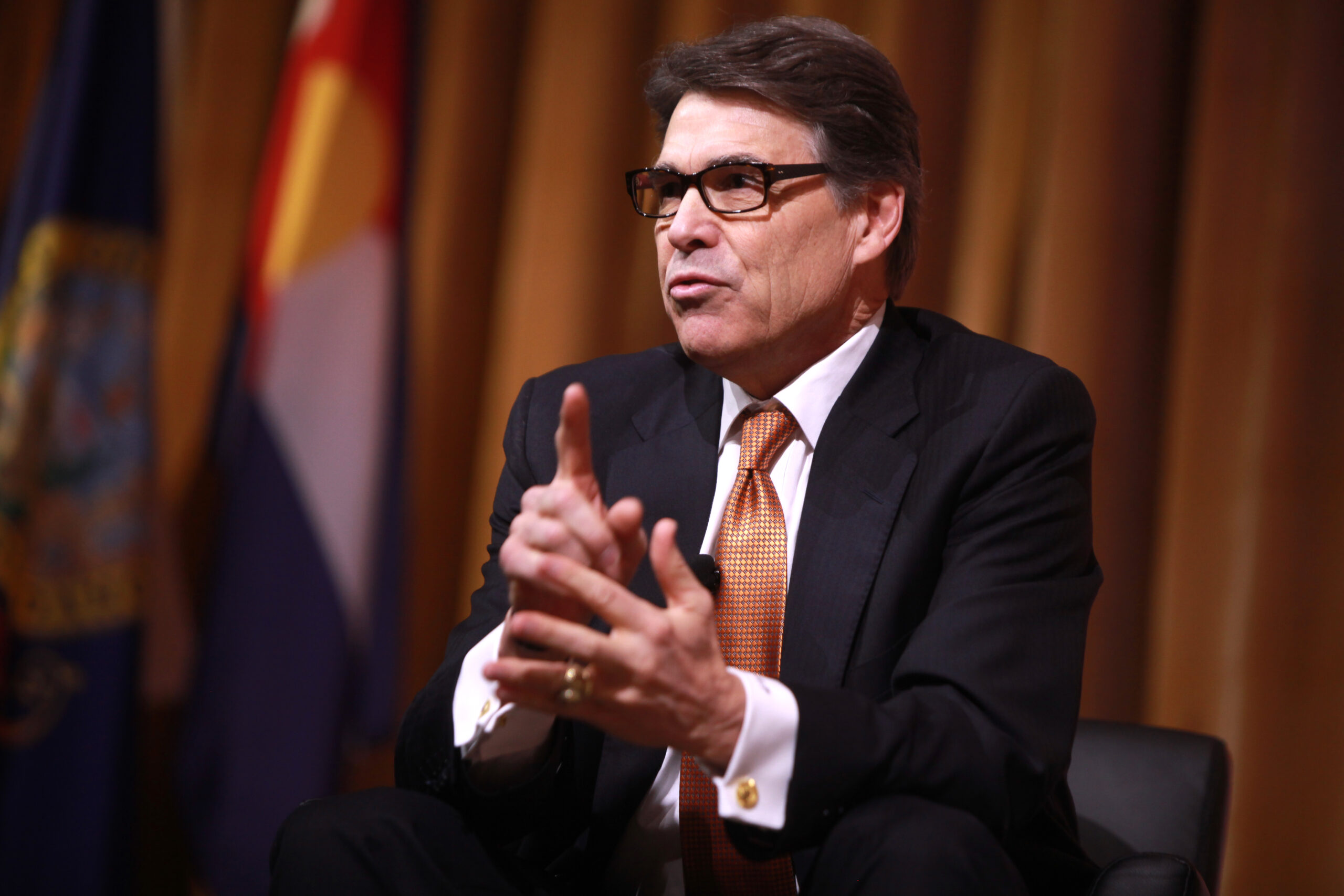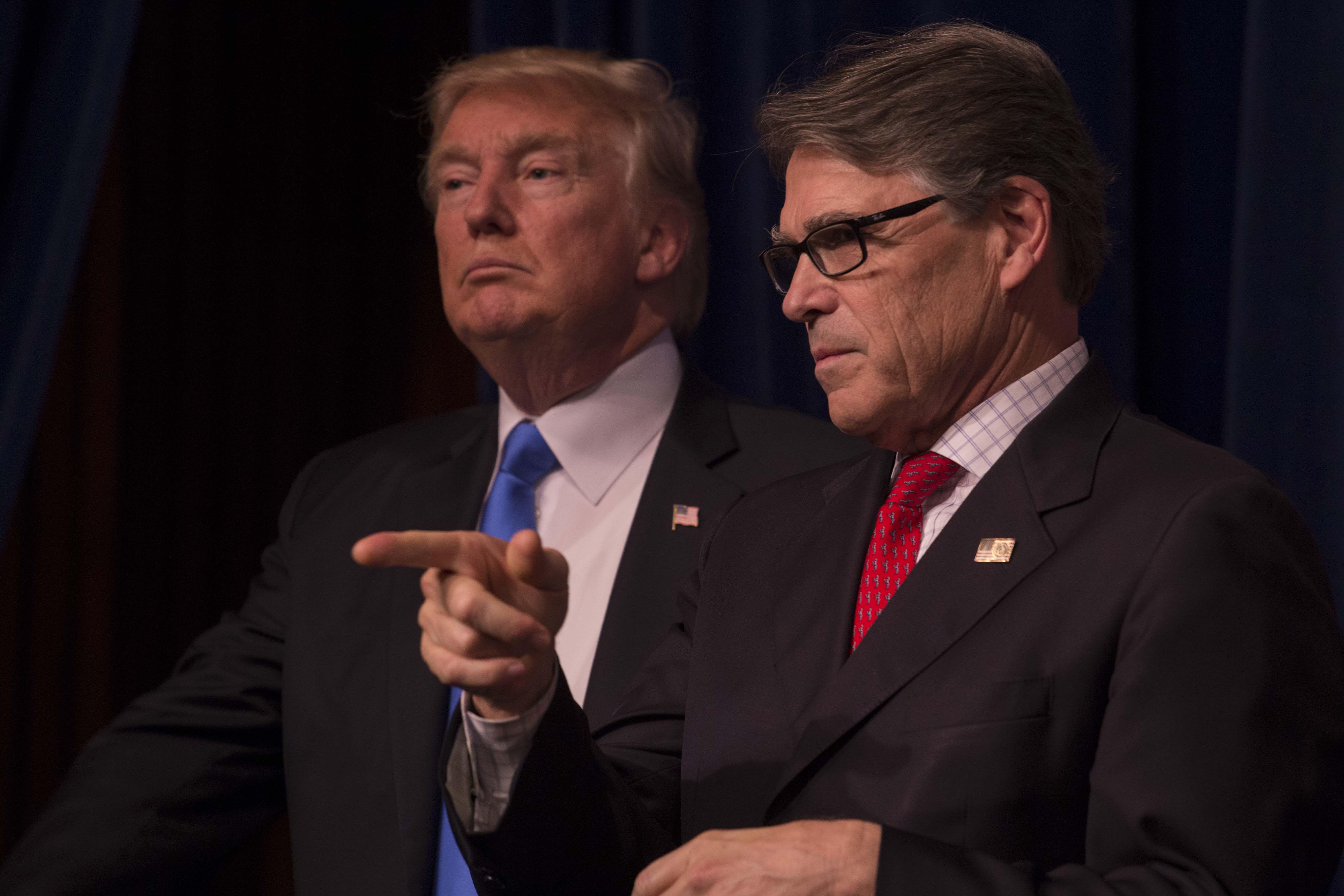
Rick Perry’s Energy Industry Connections — in the U.S. and Abroad
We’ve been investigating just how well Rick Perry upheld his long list of recusal obligations — and whether outside influences played a role in policy.

Before being selected to head the Department of Energy in President Donald Trump’s administration, former Texas Gov. Rick Perry ran for the 2016 Republican presidential nomination, where he benefited from millions of dollars in campaign spending by the energy industry. One donor was Dallas billionaire Kelcy Warren, the CEO of Energy Transfer Partners, who gave a pro-Perry PAC $6 million. Another longtime Perry backer was Michael Bleyzer, whom Perry recommended in May 2019 for the board of Ukraine’s state-owned natural gas company, Naftogaz. A little more than a month later, Ukraine awarded an oil and gas exploration deal to Bleyzer and his partner.
The energy industry connections went further than that, though. Prior to his confirmation, Perry also resigned from the boards of Sunoco Logistics Partners and Energy Transfer Partners, both developers of the Dakota Access Pipeline. One of Perry’s former top advisers, Jeff Miller, raised money for President Donald Trump’s reelection campaign and ran a lobbying shop that counted Energy Transfer Partners among its clients.
As secretary, Perry attended energy and commerce events in Kentucky with Senate Majority Leader Mitch McConnell, a vocal opponent of stronger energy regulations. And Perry’s energy connections weren’t just professional — his son, Griffin Perry, helps lead oil and gas investment firm Grey Rock Energy Partners, a company that former Sec. Perry was an investor in before joining the administration.
Perry’s business and industry ties weren’t limited to energy, either. In 2016, Perry joined the board of Celltex Therapeutics, a stem cell company through which he had previously undergone “experimental back surgery.” The company was founded by David G. Eller, a Perry donor, and had moved its operations to Mexico in 2013. But a 2017 Texas law could open the door for the company to again provide treatment in the U.S. After resigning from the Celltex board and recusing himself from matters related to the company, Perry’s wife joined the board.
In November 2019, Perry resigned to be replaced by his deputy, Dan Brouillette, who had been involved in many of the administration’s more controversial energy policies. But even with Perry out, American Oversight continued to investigate the role special or private interests may have played in the administration’s energy policy.




